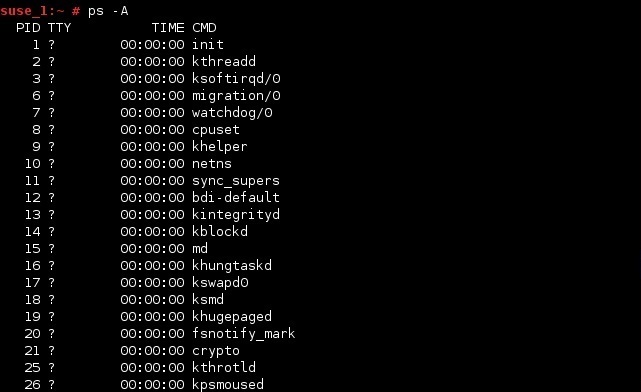
Linux list all processes by port how to#
I wrote an article a while ago explaining how to do this with ss (netstat), but it’s good to know how to do this with lsof too, in case ss is not available in the machine. The most common use I have for lsof is finding which process is using a port I’m trying to use. NAME - Name of the file, device, stream, etc.NODE - This varies depending on the type of file, but it can be an inode number for a regular file.SIZE/OFF - Depending on the type of file, this will be the size of the file or offset.This field helps identify exactly what is this thing (file, directory, socket, etc.) You can also change the state value to see services that are dead, exited, failed, or inactive. This will show you each active service's name, load, sub-state, and description. TYPE - Because pretty much everything is considered a file, lsof will list all kinds of things. To see all running services on a Linux system with systemd, use the command 'systemctl -typeservice -staterunning'. Aside from those two options, here are some other common examples of the ps command that list running processes in Linux: ps -u username lists all running processes of a certain user.A file descriptor can be followed by r, w or u to represent read, write and read-write modes It provides information about the currently running processes, including their process identification numbers (PIDs). FD - Usually this is a number representing a file a descriptor, but there are also some special values (they can be found in man lsof).For example, this would terminate processes utilizing TCP port 80. Just specify the port type (TCP or UDP) and the port number in your command. COMMAND - The unix command associated with the process. For processes listening on a TCP or UDP port, the fuser command along with the -k (kill) option will terminate the related processes for you.Network services are processes that run on your computer and provide some type.

If you execute as any other user, you might only be able to see files owned by that user. Because the list of all routes on large networks, such as the Internet. This command works better if executed by root or using sudo. Additionally, the sheer number of files makes it difficult to find malicious processes.

Since Linux sees every object as a file, such as devices, directories, etc., unidentified open files prevent users from modifying them. We can use the lsof command to find the process using a specific port with the -i :portnumber option: The first four columns in the above output tell us the process name listening on port 22 and its PID, owner, and the file descriptor. COMMAND PID TID USER FD TYPE DEVICE SIZE/OFF NODE NAME Introduction The lsof command stands for LiSt Open Files and shows open files and which process uses them. The lsof command can list all open files in a Linux system.


 0 kommentar(er)
0 kommentar(er)
